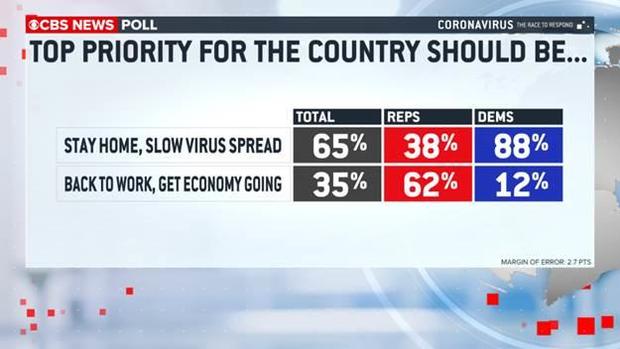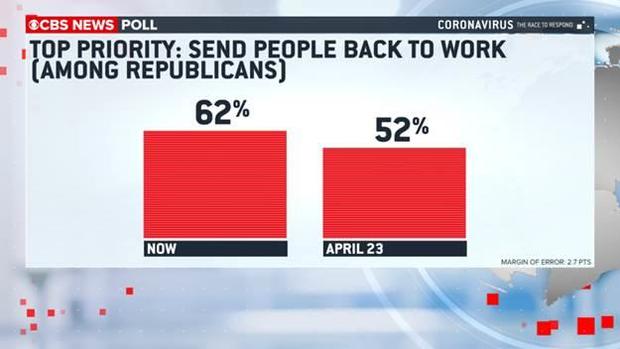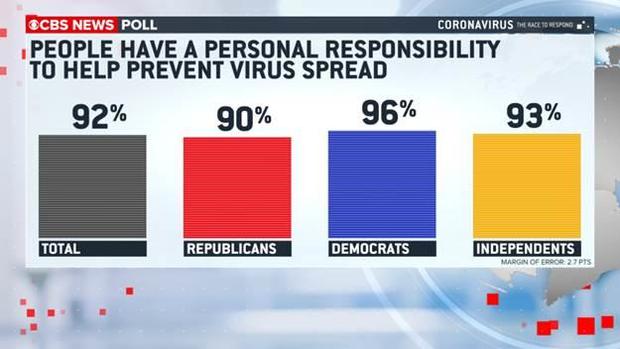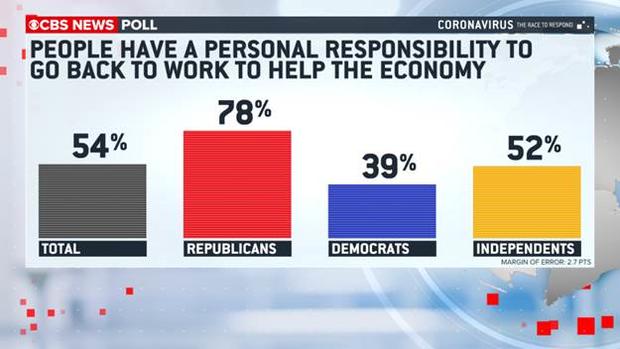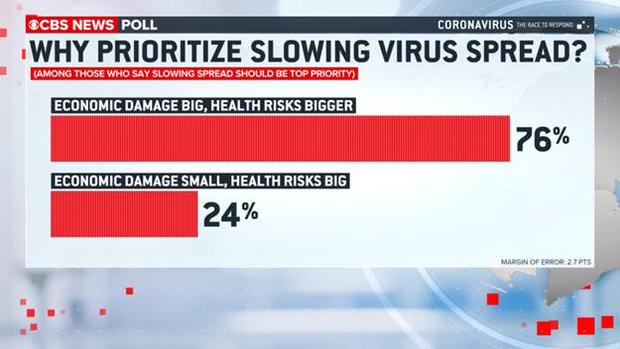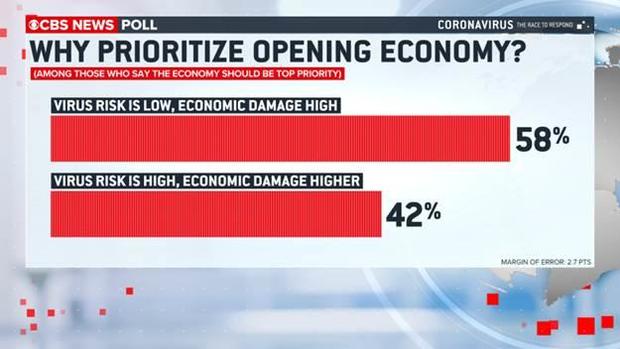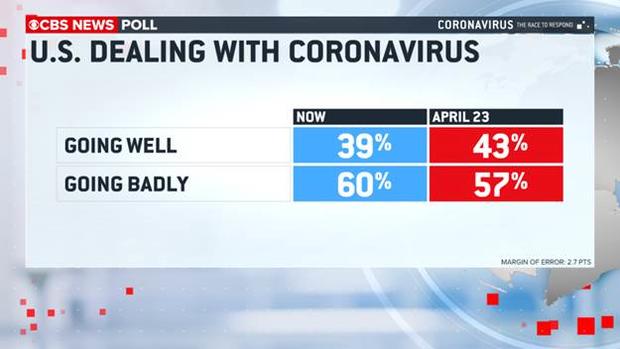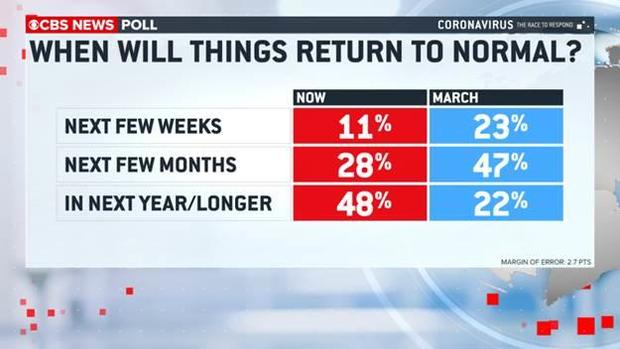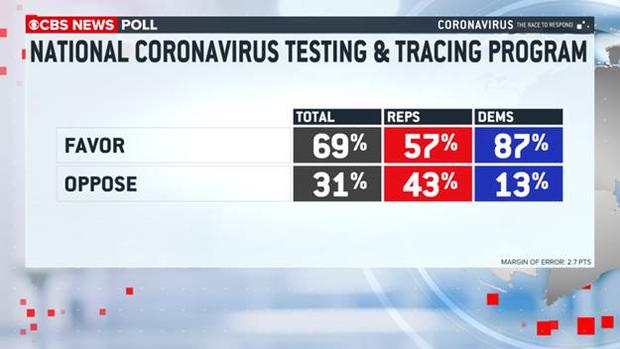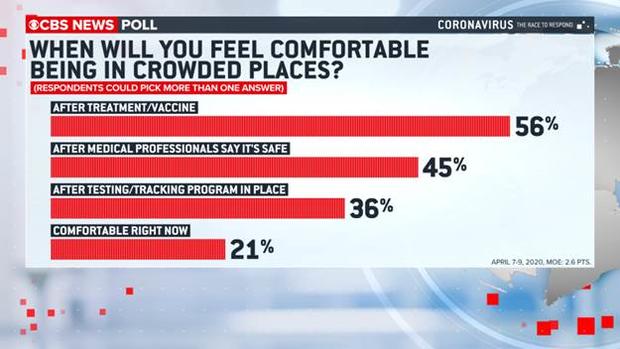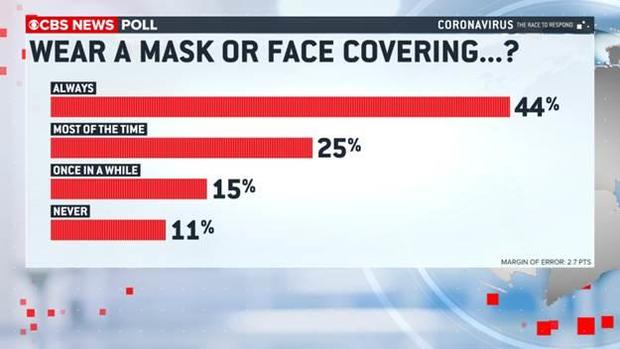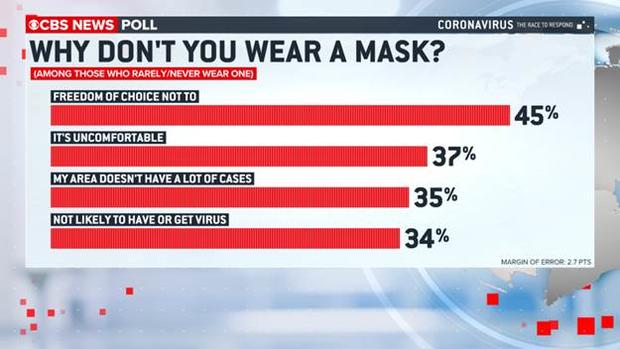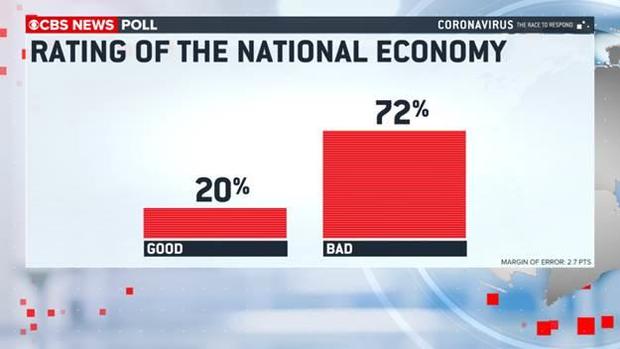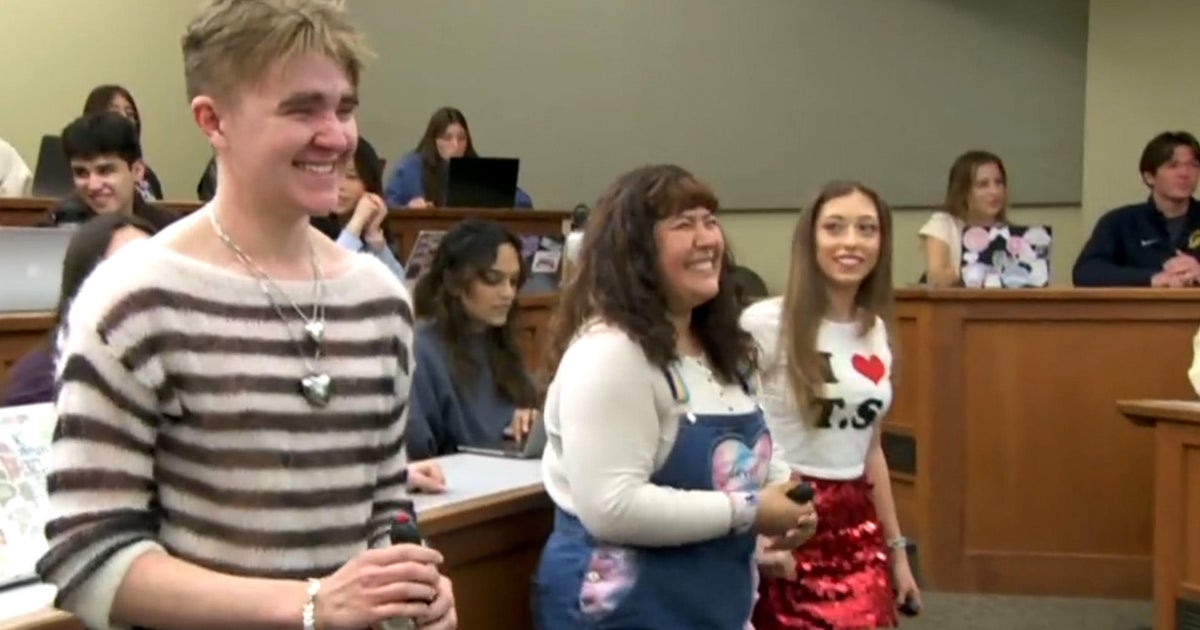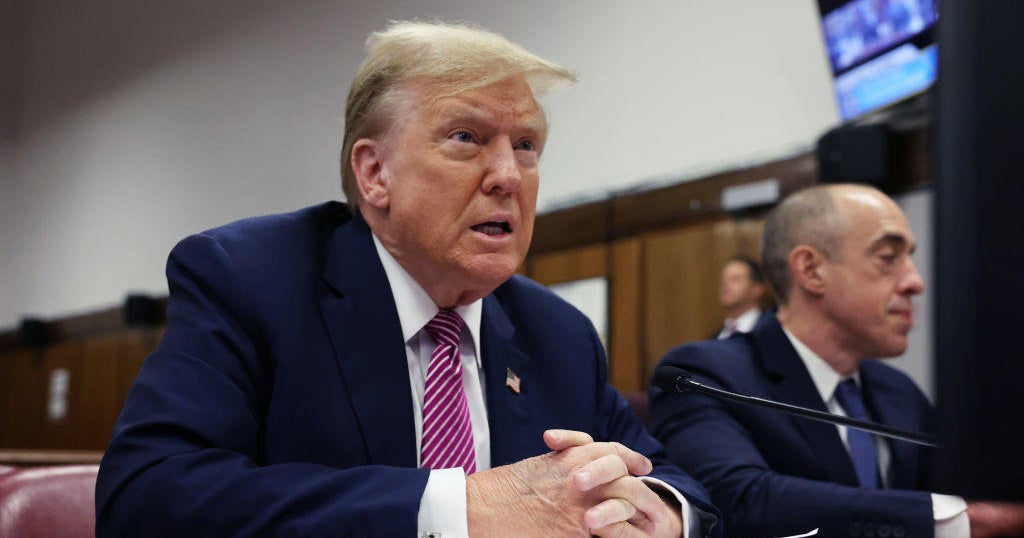Public says coronavirus containment still going badly in U.S., CBS News poll finds
There's fierce debate over when to reopen the U.S. economy, and the partisan gap is opening wide. Americans feel the timeline for things to return to "normal" has been pushed back dramatically.
A large majority of the public still prioritize staying home to slow the outbreak, over reopening the economy, partly because they continue to think efforts to contain the outbreak are going badly. But now there's a growing gap between Republicans and others on reopening, as Republicans increasingly adopt the White House's call to do so: 62% of Republicans want the country to prioritize going back to work even if it exposes more people to the virus; that's up 10 points from three weeks ago in late April.
And that appears unrelated to their own economic situation. Among Republicans, those concerned with being hurt financially by the lockdowns, as well as those who are not, both prioritize opening up the economy.
While Americans overwhelmingly agree that people have a personal responsibility not to spread and to protect others from the virus, Republicans (78%) are far more likely than Democrats (39%) or independents (52%) to say people also have a personal responsibility to go back to work to help the economy, too.
Those prioritizing containment tell us it's a tough tradeoff: by a factor of three to one, they say the economic damage is big, but they feel the health risks are even bigger.
For those prioritizing the economy, the tradeoff looks a little easier: most of them believe the economic damage is high, but the risk of the virus is low.
Very few people of any political stripe believe Americans should be asked to take on the risk of coronavirus for the sake of the economy, but many do think it could be voluntary if someone wants to assume that risk.
When will things return to normal? Longer than Americans thought...
Americans continue to think the U.S. effort to contain the outbreak is going badly, and fewer think it is going well now than did last month.
Amid reports of slowing cases in some areas and rising caseloads in others, those who feel the effort is going badly also feel things will not get better in the next few months. Moreover, more people now feel it will take longer for things to return to normal.
In March, 22% of Americans thought it would be in the next year or longer that things would return to normal. Today that's up to nearly half who think it will be that long.
Testing: Majority and bipartisan support
A large majority of Americans favor a national virus testing and tracing program. This includes a majority of each party, though Democrats are especially in favor.
Implementation may have a lot to do with who is comfortable going out in public and who's not. For one third of Americans, cutting across age groups and education levels, a testing program is one thing (among others) that needs to happen before they feel comfortable going into public places again.
Most say they're wearing masks. Those who don't cite "freedom of choice."
Most Americans (69%) say they now wear a mask or face covering at least most of the time when they go out. Those very concerned about getting the virus themselves, and who live in places where they say there are many cases, are especially likely to do so. Urban and suburban dwellers say they wear masks more often than those in rural areas.
There are partisan and age gaps on reported mask-wearing: 55% of Democrats say they wear one "always" and 35% of Republicans say the same. Americans under the age of 30 are less likely (at 35%) to report wearing one "always" than older adults over 65 (47%).
People who rarely wear a mask say it's their freedom of choice not to (45%); masks are uncomfortable (37%); their local area doesn't have a lot of cases (35%); or they believe they are healthy and not likely to have, or get, the virus (34%).
It's less about anything symbolic or political: less than a quarter say forgoing a mask is making a statement they aren't afraid; less than a quarter says they don't wear one because they think masks are promoted by liberals or the media. One in five doesn't have one.
Those who wear a mask say they do so out of concern about catching (75%) or spreading (62%) the virus, that it is the rule in their community (53%), and to show solidarity against the coronavirus (48%).
Economic ratings stay low, outlook mixed
Overall evaluations of the national economy continue to be negative, as they have been since mid-March. 72% say the economy is in bad shape, similar to what it was earlier this month.
And the public's economic outlook over the next few months is mixed. A third expect the economy to get better, and the same percentage believe it will get worse. Republicans are more optimistic than Democrats. Those who are very concerned about losing a job or paid work hours, or already have, are particularly pessimistic.
More than a third of Americans say their finances — their ability to pay bills or their income — have already been impacted by the lockdowns resulting from the coronavirus outbreak. Thirty-eight percent think they can go at least another few weeks before being affected. Nineteen percent think they will probably never be impacted.
Thirteen percent report that they themselves or someone in their household has lost a job or had their hours cut due to the coronavirus pandemic. Just a quarter (27%) do expect to be rehired after the lockdown orders are lifted. Four in ten think maybe they might be.
This CBS News survey was conducted by YouGov using a nationally representative sample of 2,000 U.S. residents interviewed between May 11-13, 2020. This sample was weighted according to gender, age, race and education based on the American Community Survey, conducted by the U.S. Bureau of the Census, as well as 2016 presidential vote and registration status. The margin of error is +/- 2.7 points.
Poll toplines / Poll toplines - 2nd set
